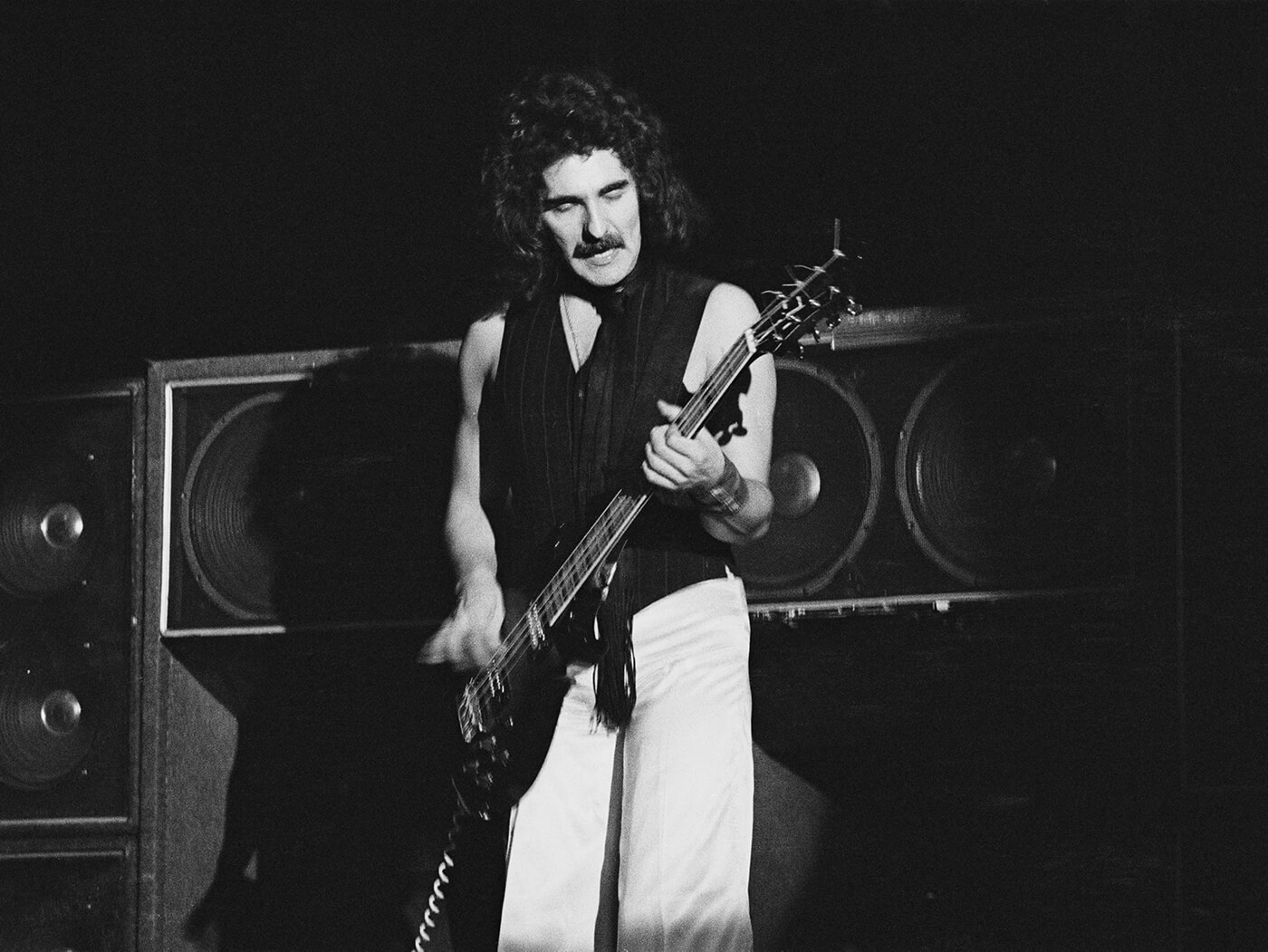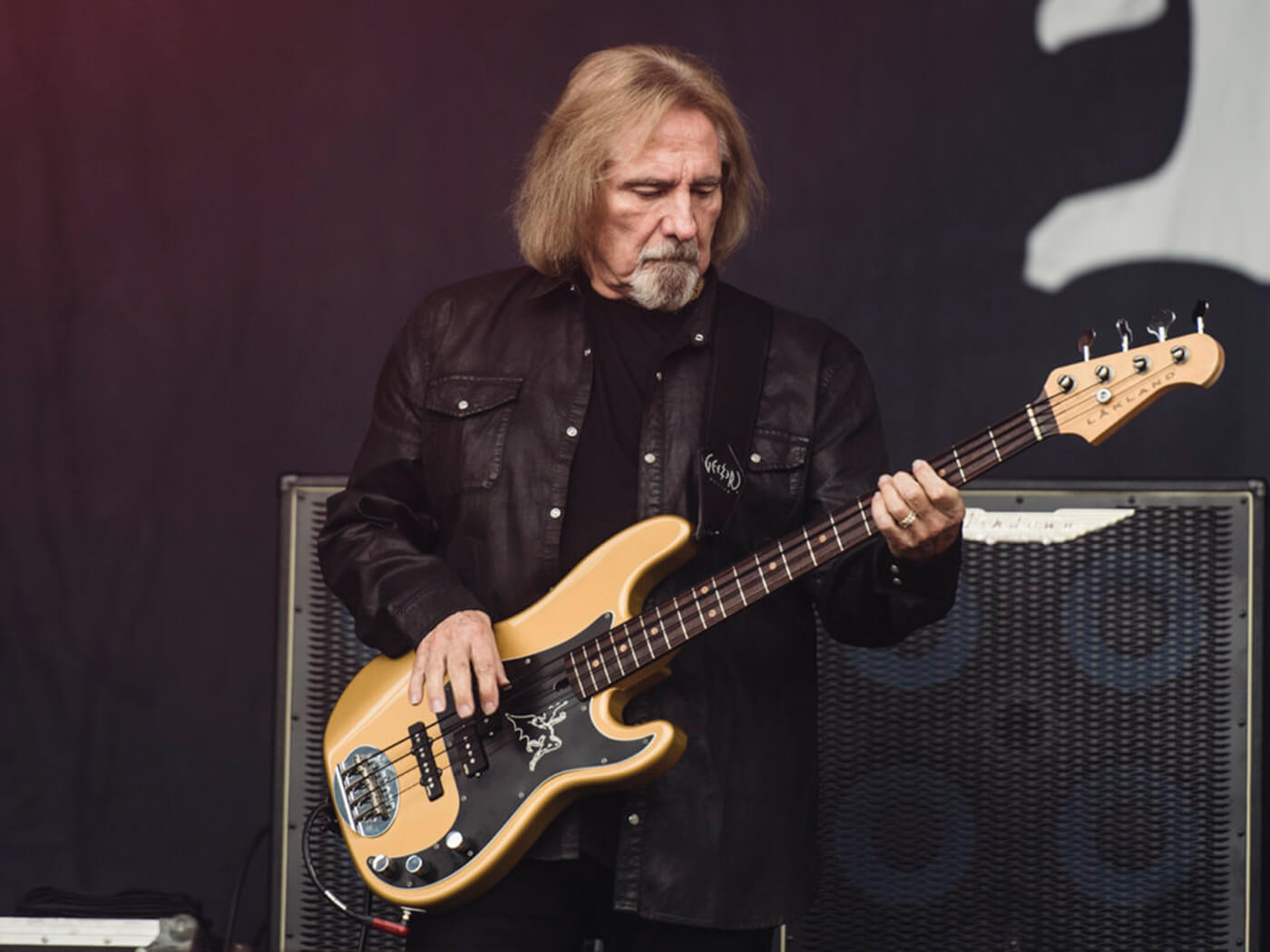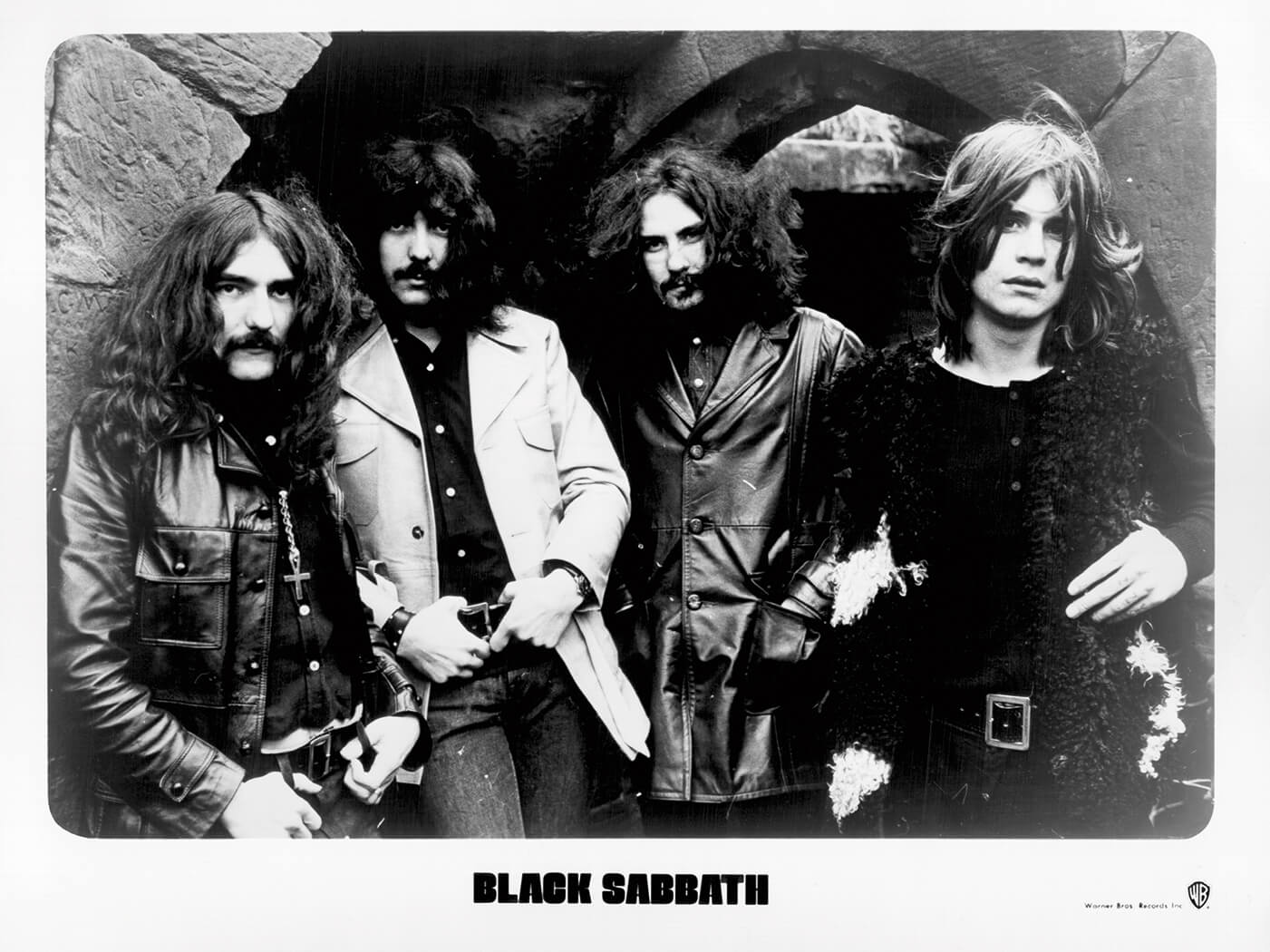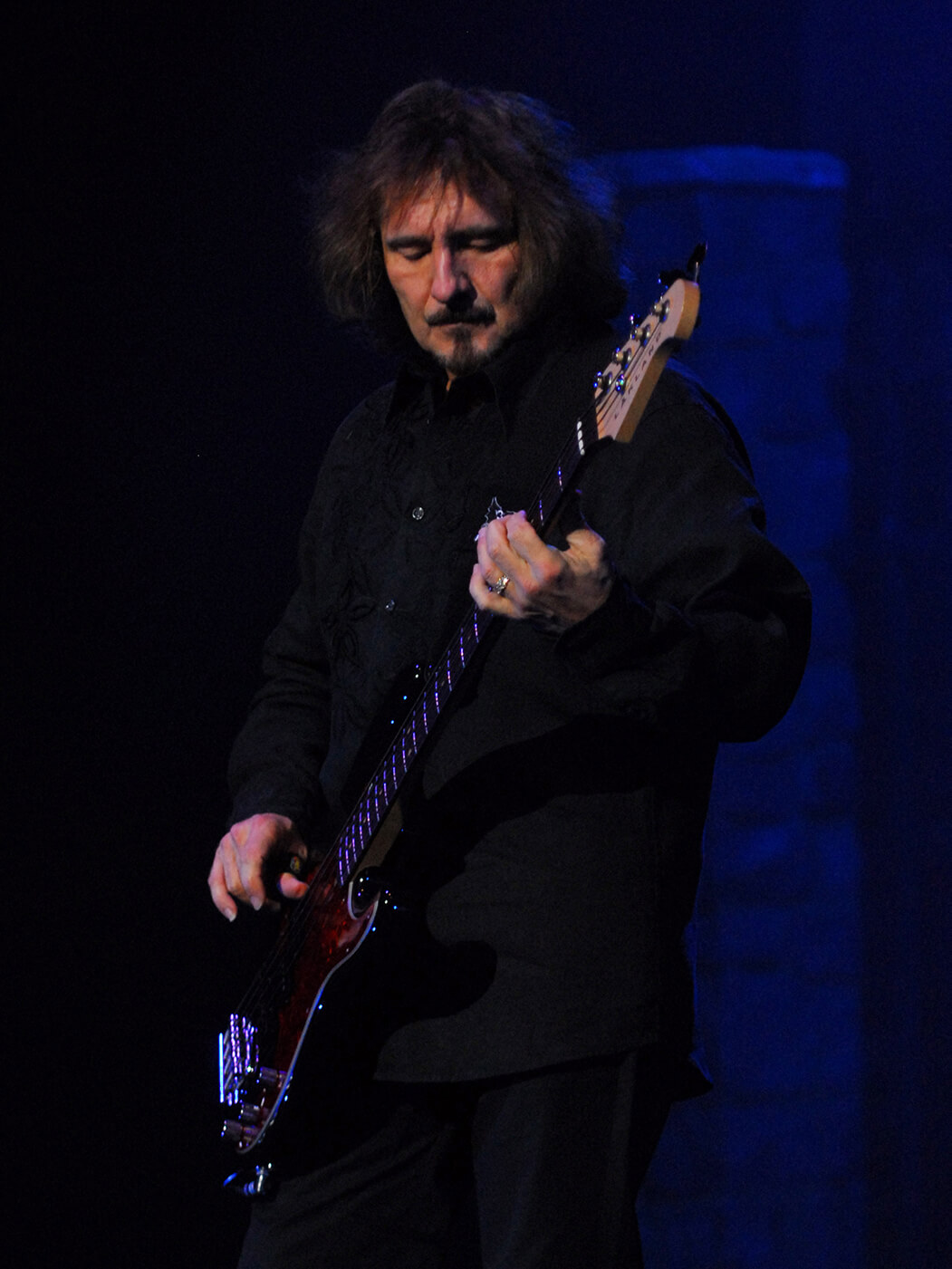“We were outsiders fans related to”: Geezer Butler on Black Sabbath
Black Sabbath’s Geezer Butler enjoyed a 50-year ride with Black Sabbath. But the lure of playing music proved too strong to resist – and now he’s back with a new rock ‘supergroup’, Deadland Ritual.

Image: Erica Echenberg / Redferns
It’s been over 50 years since an accident of geography changed the course of music forever. For if Ozzy Osbourne, Tony Iommi, Bill Ward and Geezer Butler hadn’t grown up in spitting distance of each other, Black Sabbath might never have formed – and heavy metal might be a very different thing today, if it even existed at all.
“What are the chances that four people living streets away from each other would form a band and it would last 50 years?” Butler enthuses, when we ask him about Sabbath’s long, long innings. “It’s incredible. When we started, we thought we’d last a couple of years if we were lucky. It’s gone by so fast.”
Sabbath toured the globe more than 45 years, garnering international adulation that remains strong to this day. Yet for Geezer, a career highlight is simply the recognition that the once-scrappy foursome had what it took to succeed despite the odds.
“The main thing for me that always stood out was that in the beginning, nobody gave us a chance. No one believed in us. Once we recorded an album, we had something tangible to show people. They finally realised we were serious and we were good at this.”
Roots notes
Geezer, who was born Terence Michael Joseph Butler in 1949, was raised in a large Anglo-Irish family in Aston and credits his background with giving him the will and tenacity to persevere with music.
“I had a nice working-class upbringing; we never went without anything,” he explains. “I had great parents, a really happy childhood. Dad never missed a day of work in his life. That inspired in me a similar work ethic. Plus, I always believed in what I was doing, which helped.”
Elvis would be his gateway to rock ’n’ roll, but The Beatles would go a long way towards demystifying music, for a very straightforward reason.
“They had similar accents to us,” he says, simply. “They were the first English band who didn’t try to sound American. The music was fantastic and I loved their haircuts. I wanted to be a Beatle!

“So, I bought an acoustic from a classmate for 50p and it only had two strings. But I still played all the Beatles melodies on it. It took two years until I realised that if you put your fingers on the fretboard, you changed the notes!
“After I started getting good with just the two strings, my eldest brother bought me a six-string for eight quid. That’s when I got serious. I got the Bert Weedon book [Play In A Day], learnt chords and became a rhythm guitarist, starting a band with a school friend – although we were no good. We did Kinks, Stones and Beatles covers. Everywhere we got booked, it was only once because we were so crap!
“I eventually found Ozzy through an advert when our singer left and we carried on for a bit until meeting Bill and Tony.”
Four-string wonder
Upon recruiting Iommi into the band, however, it soon became apparent to Geezer that the guitar side of things was covered… and what the band could really do with is something more bassy.
“I tuned my Telecaster way down and used that as a bass!” he reveals. “I never actually played a bass before our very first gig. On our way there, we passed my old bass player’s house. So I borrowed his for that show.”
He soon purchased his own Fender, but in those early days, the band, still called Earth at this point, was not a towering metal behemoth – far from it. “Initially, we were a blues band with jazz inflections, playing Hendrix and Cream covers,” he recounts.
Within a year, however, he’d co-written the epoch-defining Black Sabbath album and suggested changing the band’s name to the same. That self-titled debut is widely considered to be the first heavy-metal album, with its hazy, sludgy, elongated songs often springing forth from extended jam sessions – a well the band would return to often.
“We use to jam two or three hours, or whenever we got to rehearsals,” he recalls. “We’d go to the community centre where there was free rehearsal space from 9 to 11am. So we’d have two hours to come up with new songs. We didn’t have any means of recording our ideas so hopefully we’d remember them the next day and carry on from there.
“Then we went to Switzerland and we’d have to do seven 45-minute spots a night, but we only had a handful of songs. So we’d make each song last 45 minutes. That’s where most of Paranoid came from: out of those jams.”
With a love of literature and a nose for interesting subject matter, Butler would also become the band’s primary lyricist in those early years, with subject matter pulling in everything from the occult and religion to war and the environment. He was certainly ahead of the curve.
“It shows nothing has changed much,” he sighs. “I wrote Into The Void about pollution, the environment and what’s now called climate change… sadly that has not improved, either.”
Doom merchant
The doom-metal sound that Sabbath pioneered relied heavily on the interaction between Butler’s bass and Iommi’s guitar, but he’s quick to play down his contribution.
“It’s basically because I was copying what Tony did,” he explains. “Then filling in the solo parts. Probably 60 per cent of the songs are instrumental and only 40 per cent vocals. So I was following Tony on the main riffs, then me and Bill would fill things out on his solos.
“Because I was a rhythm guitarist, I’d fill in gaps left by the lead guitarist. I continued that with bass: being the rhythm player. I never rated myself as a bass player; I just played what I thought was necessary for each song.”

Sabbath finally called time on their illustrious career back in 2017, but in the years since, Butler has found himself wanting to scratch his musical itch. So last year, Geezer teamed up with Matt Sorum, Steve Stevens and Franky Perez to form the supergroup (though he considers the term “lame”) Deadland Ritual.
“When we finished Sabbath, I thought I’d retired,” he observes. “I thought I would spend the rest of my life doing exactly what I wanted. I did a lot of travelling with my wife the first year, plus a lot of hiking on my own, I like to be out in nature. Deadland changed my mind. As I’d been playing music 50 years, it was hard to just stop.
“I’ve got a studio at home and was missing the ambience of a band. When Matt phoned me up, I gave it a go. Deadland is satisfying my desire to write, we’ve done festivals all over Europe. We’re having fun at the moment and writing some good stuff.”
Gear shift
The books in his meticulously curated home library will have to wait for him for a little while longer, then, but Deadland Ritual also saw some of his trusted gear left behind, as he switched things up for his new band.
“I’m using smaller amplification,” he affirms. “I’m using Ashdown heads and their 8×10 cabinets, because we’ve scaled down compared to Sabbath. We’re playing some small clubs and festivals, so I’m using two of those.”
He’s sticking with his beloved Lakland basses, however, with his signature model still his weapon of choice.
“I play them as they are well made and Lakland are a great company to work with. I wanted a gold-sparkle Geezer signature bass. Apparently, it’s really hard to make it a particular gold and it took them months to get it exactly right!”

One thing that isn’t coming out on the road with him, however, is the Lakland bass adorned with the crest of his beloved Aston Villa FC, which he played for the final Sabbath gig in Birmingham back in 2017.
“I played it only once. It’s a very special bass to me,” he declares. “It’s the last bass I played with Sabbath. I don’t want to take it on the road.”
Speaking of that final night with Sabbath, we wonder if he got a bit emotional with the four of them coming back to the city where it all began one last time, but his answer is typically forthright. “I might have shed a few tears… had I not known that me, Tony and Ozzy were reconvening to record a few days later! But I would have gotten emotional otherwise.”
With his time in the band finally over after half a century, it feels like Butler is in a good place to look back at his time in Black Sabbath and appreciate both the high and low moments.
“The lowest point was Never Say Die!,” he reflects, picking out the band’s fractious eighth studio album, which would be followed by Osbourne’s departure from the band for over 30 years. “There’s a couple of instrumentals on there, some filler and things were not the same anymore with Ozzy by then. That’s the album I wasn’t really happy with.”
It’s clearly not all bad, though and despite his modesty regarding his bass-playing abilities, Geezer’s favourite Sabbath moments are the ones where he got to push himself.
“I still enjoy Sweet Leaf as the solo is always a challenge and we play it in Deadland,” he enthuses. “War Pigs is also great to play to audiences who still get how relevant those lyrics are. On the final Sabbath tour in Chile, with 75,000 Spanish-speaking fans singing along to every word of it in perfect English – that meant a lot to me.
“Sabbath were not about pop singles with meaningless lyrics on Top 40 radio. Fans sought us out – we were outsiders they related to.”
Find out more about Deadland Ritual at deadlandritual.com
